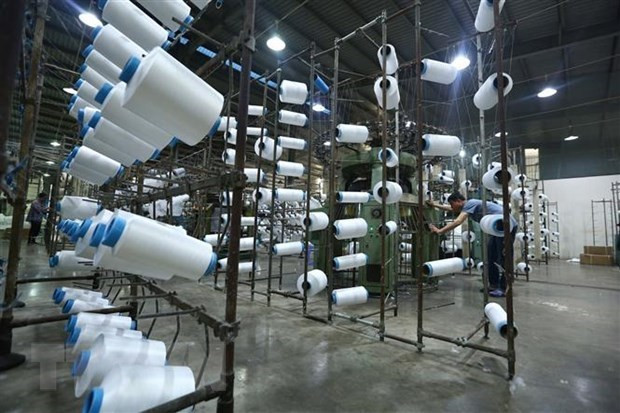
The revenue increased 10% from a year earlier, according to the Vietnam Cotton and Spinning Association (VCOSA).
Meanwhile, textiles and garments, fibre, yarn and fabric brought home 18.73 billion USD in total exports during the period, rising 20.81% year-on-year. That includes 14.99 billion USD in textiles and garments (up 22.2%), 376.8 million USD in geotextiles (up 27%), and 979.8 million USD in materials (up 19.2%).
VCOSA noted China accounted for nearly 60% of Vietnam’s textile and garment exports.
Meanwhile, the US and Europe, which are the world’s biggest textile and garment importers, have reduced shipments from China, giving Vietnam a chance to expand its market share.
The association also cited the World Health Organisation’s prediction that new COVID-19 variants will continue appearing in 2022, expecting the country’s fibre and yarn segment will continue to be the main recovery driver of the industry and be less affected by the pandemic compared to the apparel segment, which is labour intensive, since its manufacturing is mostly conducted by machine.
VCOSA added Vietnam’s economic integration into the world, especially the participation in free trade agreements such as the Comprehensive and Progressive Agreement for Trans-Pacific Partnership (CPTPP) and the EU - Vietnam Free Trade Agreement (EVFTA), also promises breakthrough developments for the fibre and yarn segment.
Source: VNA